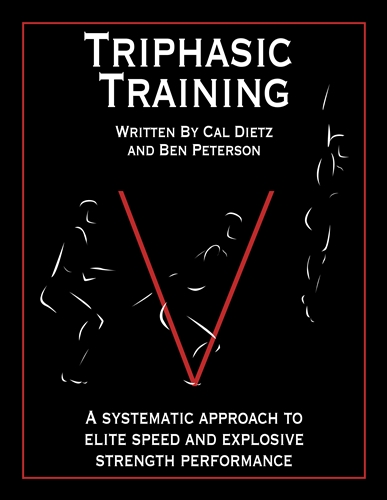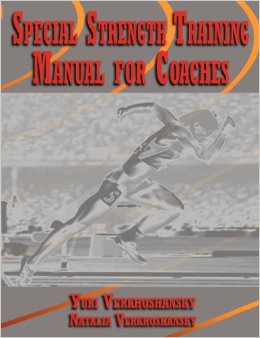What does it mean to be a strength coach?
In my opinion, the strength and conditioning world has shifted in a direction that has a strength coach believing they need to be more of a movement/prehab specialist; instead of being what the name says, a STRENGTH COACH. If you say you’re a strength coach, I ask you to read this article, and see if you really fit the criteria.
This is an article of self-reflection for those that consider themselves strength coaches. I want YOU, the strength coach, to answer these four questions:
1.) Are your athletes getting stronger? I’m not talking about how long they can hold a plank, but are they squatting and benching more?
2.) Are your athletes more powerful? Retest their 10 yard sprint, 40’s, broad jumps and verticals. Have they improved?
3.) Are you spending all your time learning in the world of prehab and physical therapy or are you reading books on how to make athletes stronger and more powerful
4.) How much of your programming is spent under a bar, and how much focus is on “prehab”?
(cheat sheet...1. yes 2. yes 3. some prehab but Mel Siff and Vertashansky never leave my side, and add more weight is the most common saying at my gym.)
1. Are your athletes actually getting stronger?
The obvious answer to the question will be yes. However, how you define strong might be a little different than me. Strength to me isn’t increasing how long you can hold a plank or side plank. Strength is the amount of weight your moving on the bar. Has your athlete’s 1RM increased significantly? For example, has their squat increased over 100 or 150 lbs, or has their bench or inline lunge or split squat increased significantly. I have girls constantly using pairs of 50, 60, and 70 lb dumbells when they’ve started with 20’s. Yes, my 140 lb female athletes do inline lunges with TWO 70 lb dumbells. To me that is stronger. It is way too common these days to see videos of kids holding small weights and making it seem like hard work. A lot of reps with any weight is hard, that doesn’t mean your getting stronger, in regards to specifics of your sport. I ask you to hold you athletes, and yourself to a higher standard of strong. I’ve written this in the past, and will continue to write about it moving forward.
Some of my athletes hitting pr's!
2. Are your athletes more powerful?
Again I hope the obvious answer is yes. Your goal as a strength coach is to make your athlete a better athlete. I like to say, a bad ass athlete. If he or she isn’t more powerful, you need to check your programming. Depending on the level of athlete and their previous training experience, some athletes can make you feel like the top strength coach in the world. When the stress is applied properly, and movement is of high quality, athletes can increase their vert upwards of 6 inches, and can decrease their sprint measurable by .5 seconds within 8 weeks. This is not an exaggeration. Figuring out the best way to make an athlete powerful is dependent on the athlete. For most of the kids coming in to 1RM, they are just weak. Two weeks of improving movement patterns and actually squatting under a bar with minimal sprint work will always result in a faster more powerful athlete. I love when an athlete sees how much faster they are and how much higher they can jump by only squatting consistently. Their minds are normally blown! This is consistent with every single athlete. All of my athlete increase by over 100lbs in the squat over the first four weeks. Being able to generate and apply more force into the ground will make you faster. It’s pretty simple.
3. Are you spending all your time learning in the world of prehab and physical therapy or are you reading books on how to make athletes stronger and more powerful?
This question is a little more complicated. As a strength coach, I feel that it is most important to keep an athlete healthy. Being able to throw 97 mph is useless if you’re sitting on the sideline for a back injury. There are a lot of things that I do with my kids to continue to ensure that they maintain quality of movement through everything that they do. I’m sure my athletes are plain sick of me saying, pressure in your belly, longer through your spine, drop here, lift here, shoulders away, activate here, press harder into the ground, watch your knees on this one, etc. I’m a stickler for movement, and efficient loading. It has taken time to understand joint positioning and the implications it has on performance and risk of injury. I continue to learn about it every day.



In the same light, I spend time to understand these details and finer points of movement for one reason. It allows my athletes to become even faster, even more powerful, and even more of a beast. The better the joint positioning, the more efficient transfer of energy through the joint, the more force applied into the ground of implement.
While spending time learning on this end of the spectrum, I have remained studying the works of Mel Siff, Cal Dietz, and Verkhoshansky. I am literally reading Super Training for my fourth time and I’m about to read Triphasic Training by Cal Dietz, for a second, after spending last weekend with him.
Again, my goal is to be one of the greatest strength coaches, not one of the greatest prehab specialists. Yes, the two come hand in hand, however, I feel as if most strength coaches today are wrapped in the prehab world. This isn’t totally their fault. If you look at the most admired “strength coaches” you will find soooo much info on injury prevention and joint health. There is minimal info on actual programming and how athletes are getting stronger. I’m not saying this is a bad thing; athletes need to be healthy and moving properly in order to perform. However, don’t forget what the ultimate goal is: the performance of your athlete. It’s hard to get faster doing a clamshell every day (I personally hate the exercise as it is).
I like being strong, and getting stronger. The only thing I like better than being strong, is making my athletes stronger. The look on their face when they crush a personal best or accomplish a goal in the gym or on the field gets me going.
4. How much time is actually spent under a bar and how much of your day is spent on your athletes prehab movements, dynamic warm up, tissue preparation, and talking?
Make athletes strong and keep/make athletes healthy. The ultimate goal with every athlete is to make them a better athlete. Sometimes making a kid a better athlete means to spend a little more time correcting movement dysfunction and less time training hard. This is all personal opinion. When you feel like an athlete moves well, get after it! If not, or if you have doubt, you’re better off being safe, than sorry. But lets not forget if you’re a strength coach, you should be a strength coach.
I’m guilty of spending to much time working DNS movement patterns and developmental positioning with my athletes. It’s easy to lose track of time when you’re cuing and getting kids into ideal positions. I continue to learn every time I use it. This isn’t time wasted though. Kids need to be moving efficiently so they can perform in the future. Days like this are rare, unless the athlete just moves terribly.
Eventually these exercises become part of the warm up to ensure were maintaining joint centration, or worked in as their specific movement exercises. But again, only added in because it will help in their performance in the gym and on the field.
My favorite time of the day is when we train hard. Under the bar, moving some weight! I love DNS, it is magic, however it is a little slow at times. I have to grind through the DNS to get to the good stuff, aka, moving weight. It’s hard for my new athletes to understand the importance of DNS, but as a new athlete just found out, “maintaining intra abdominal pressure and joint positioning makes squatting so much easier”.
A Paradigm Shift
One of the last things Cal Dietz and I agreed on before leaving Winnipeg was how there has a been a paradigm shift in the strength and conditioning world. Strength coaches have gotten away from being strong, and have fallen in love with soft training. Coaches are so concerned with managing stress that they don’t stress their athletes enough, and make no progress. Or in some cases, that I’ve seen with my athletes, they come back from college slower and weaker, because they aren’t stressed enough!

The True Definition of a Strength Coach
By definition, A strength coach must be courageous, strong, and influential. A strength coach must make his athletes resist strain force and wear, all while preparing his students for a final test, which is their performance on the field!
If you’re a strength coach, be a STRENGTH coach. Make your kids stronger, make them better athletes, and do it smart! You only have so much time to make your athletes monsters, so do it wisely.
BE A STRENGTH COACH